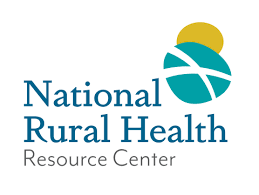- Weathering the Storm Together: Community Resiliency Hubs Hold the Promise of Local Self-Sufficiency and Supportive Mutual Aid
- Virginia Tech Researchers Bring Rural Families into the Nation's Largest Study of Early Brain and Child Development
- Expanding Access to Cancer Care for Rural Veterans
- VA: Veterans Rural Health Advisory Committee, Notice of Meeting
- Scaling Rural Wellness with Clever Collaboration
- Stroudwater Associates Enhances Rural Healthcare Dashboard with New Data to Support State Rural Transformation Grant Applications
- Harvest Season Is Here: Busy Times Call for Increased Focus on Safety and Health
- HHS Dispatches More Than 70 Public Health Service Officers to Strengthen Care in Tribal Communities
- Wisconsin Rural Hospitals Team up to Form Network
- CMS Launches Landmark $50 Billion Rural Health Transformation Program
- American Heart Association Provides Blood Pressure Kits at Southeast Arkansas Regional Libraries to Support Rural Health
- Broadening Access to Minimally Invasive Surgery Could Narrow Rural-Urban Health Gaps
- Instead of Selling, Some Rural Hospitals Band Together To Survive
- Help Line Gives Pediatricians Crucial Mental Health Information to Help Kids, Families
- Rural Health: A Strategic Opportunity for Governors
Research Brief Highlights Population Estimates

The U.S. Census Bureau released estimates of the July 1, 2024 detailed population estimates for states and counties. This release includes data by age, sex, race, and Hispanic origin.
Key Findings for Pennsylvania from the Report:
- Pennsylvania’s 65+ population grew by nearly 255,000 people (+10.6%) from 2020 to 2024, with the fastest growth in ages 75-79 (+18.2%).
- Pennsylvania’s Hispanic or Latino population grew by over 185,000 people (+17.7%) from 2020 to 2024.
For more information on county population change in Pennsylvania, read this month’s brief.
Pennsylvania Board of Dentistry Amends Licensure by Endorsement
As of July 26, the Pennsylvania State Board of Dentistry’s final regulation on Licensure by Endorsement is officially in effect.
This regulation creates a clear process for dentists, dental hygienists, and expanded function dental assistants (EFDAs) who are licensed in other states or jurisdictions to become licensed in Pennsylvania, as long as they meet requirements for substantial equivalency, professional competency, and good standing.
This regulation is not connected to any interstate licensure compact. Rather, it fulfills Pennsylvania’s requirement that state licensing boards issue licenses to qualified out-of-state professionals through an endorsement process. It also introduces a provisional endorsement license, which lets applicants begin practicing in Pennsylvania while they complete the remaining requirements.
Will Hospitals Benefit from $50B Rural Health Program? 8 Things to Know
From Becker’s Hospital Review
The Rural Health Transformation Program, enacted as part of the newly passed budget law known as the One Big Beautiful Bill Act, allocates $50 billion over five years to support rural health initiatives. However, despite the headline investment, policy experts and rural hospital leaders are raising concerns about whether the funding will meaningfully benefit rural providers, according to Health Affairs.
Eight things to know:
- Funds go to states, not hospitals. Unlike past federal relief efforts, this program does not provide direct payments to rural hospitals. Instead, CMS will issue grants to states, which must seek the agency’s approval to access and spend the funds. States are not legally required to direct any of the money to rural hospitals specifically.
- CMS Administrator has sweeping discretion. CMS Administrator Mehmet Oz, MD has broad authority to approve or deny state applications and decide how funding from the program’s discretionary pool is allocated, according to the report. The law gives him the ability to define eligible activities, including uses that may have little to no direct connection to rural hospitals.
- No performance accountability required. States must submit a rural health transformation plan and report annually, but continued funding is not contingent on performance or rural health outcomes. Once a state’s plan is approved, funding continues through 2030, regardless of results.
- Half of the funds are distributed equally. Of the $50 billion, $25 billion will be divided equally among all states with approved applications, potentially granting the same allotment to small states such as Vermont and large states like Texas, according to KFF Health News. Each would receive $100 million annually for five years, assuming all are approved.
- The other half is discretionary. The remaining $25 billion is at the CMS Administrator’s discretion. Although the law requires consideration of factors such as the proportion of rural health facilities and rural population, it does not require allocation based on those criteria, which could allow other factors to dominate the distribution.
- Short-term program, permanent Medicaid cuts. The rural program ends after five years, while the legislation implements permanent Medicaid cuts expected to total $1 trillion over the next decade. The Congressional Budget Office projects nearly 12 million people will lose coverage, and rural areas may be particularly hard hit, with rural Medicaid funding estimated to drop by $155 billion over 10 years, according to KFF Health News.
- Funding may not reach rural providers. Eligible funding activities include broad categories such as chronic disease prevention, telehealth expansion and mental health support. States can fulfill program requirements without allocating funds to rural hospitals. This opens the door to funding large national vendors or technology firms over local providers, according to Health Affairs.
- States face planning and execution challenges. States must submit applications by Dec. 31, and begin obligating funds soon after, with initial allotments potentially arriving in early 2026. However, CMS may claw back unspent funds as early as September 2027, giving states limited time to plan and implement effective programs.
New Brief Addresses Accessing Funding for Rural Health Capital Projects

America’s rural health care system faces growing challenges in accessing capital funding for essential infrastructure projects.
This paper provides a historical overview of major capital funding programs and analyzes the persistent challenges that prevent rural health care providers from converting available funding into usable capital—undermining sustainability in rural health systems.
Access the paper at Accessing Funding for Capital Projects in Rural Healthcare.pdf (931.32 KB)
Health Insurance Exchanges 2025 Open Enrollment Report & Public Use Files Released

The Centers for Medicare & Medicaid Services (CMS) released the Health Insurance Exchanges 2025 Open Enrollment Report. The report summarizes data on health plan selections through the individual Exchanges during the 2025 Open Enrollment Period (OEP). This report includes OEP data for the 31 states with Exchanges that use the HealthCare.gov eligibility and enrollment platform for the 2025 plan year, as well as for the 20 State-based Exchanges (SBEs) that use their own eligibility and enrollment platforms.
During the 2025 OEP, 24.3 million consumers selected or were automatically re-enrolled in health insurance coverage through the HealthCare.gov platform and SBEs. Nearly 2.9 million more consumers signed up for coverage during the 2025 OEP compared to the 2024 OEP, a 13% increase. Nearly 8 million more consumers signed up compared to the 2023 OEP, and 9.8 million more consumers signed up compared to the 2022 OEP, a 49% and 68% increase, respectively.
CMS also released the associated Public Use Files (PUFs) with state, county, plan, and demographic-level data for the 2025 OEP.
- To view the 2025 Open Enrollment Report, visit: https://www.cms.gov/files/document/health-insurance-exchanges-2025-open-enrollment-reportpdf508-compliant.pdf
- To view the Public Use Files (PUFs), visit: https://www.cms.gov/data-research/statistics-trends-reports/marketplace-products/2025-marketplace-open-enrollment-period-public-use-files
Medicare Updates Behavioral Health Telehealth Policies

Centers for Medicare and Medicaid Services (CMS) recently released updated information on Medicare and Mental Health Coverage, Substance Use Screening and Treatment, and Screening, Brief Intervention and Referral to Treatment (SBIRT) Services, including clarifications related to telehealth. Learn how telehealth policies support access to behavioral health care.
In July, U.S. Hits 33-Year Annual High in Confirmed Measles Cases

As of July 8, Centers for Disease Control and Prevention (CDC) reported 1,288 confirmed measles cases in 2025 in 39 jurisdictions, including the first cases reported this year in Wyoming. Among confirmed cases of all ages, 13% were hospitalized. Among those younger than five years old, 21% were hospitalized.
The CDC only requires reporting of laboratory-confirmed measles cases. Cases without laboratory testing for confirmation are not included in these numbers. Actual numbers of cases are, therefore, higher than confirmed case counts. A map of 2025 measles cases in the contiguous United States, as of July 9, from the Johns Hopkins International Vaccine Access Center is available. The U.S. Measles Tracker website includes state and county-level data. The best way to prevent measles remains vaccination.
ACS Releases Guide to Increase Colorectal Cancer Screening in Rural Communities

People living in rural, remote, and frontier settings face higher colorectal cancer (CRC) incidence and mortality rates, increased prevalence of risk factors associated with CRC, and unique barriers to cancer screenings when compared to non-rural residents. Common obstacles to screening can be exacerbated by the challenges that come with living in areas that are less densely populated and more geographically isolated. Overcoming these barriers requires creativity, resilience, and flexibility.
To address this need, the ACS NCCRT developed this guidebook to support key community partners in understanding and overcoming the unique challenges and common barriers to CRC screening faced in rural communities. The guidebook features:
- Recent data and statistics illustrating the burden of CRC in rural areas
- Five recommended actions to increase CRC screening rates
- Five case studies highlighting best practices and lessons learned from geographically and demographically diverse organizations
Learn more and access the guidebook here.
CMS Proposes Decrease to Hospital Outpatient Payments for Non-Drug Items and Services to Offset Higher Payments Made as a Result of 340B Payment Policy

Between 2018 and 2022, the Centers for Medicare & Medicaid Services (CMS) decreased Medicare reimbursements to hospitals paid under the outpatient prospective payment system (OPPS) for drugs acquired through the 340B Drug Pricing Program (“340B Program”), a Health Resources and Services Administration (HRSA) program that allows covered entities to purchase certain outpatient drugs at discounted prices from drug manufacturers. To maintain budget neutrality, CMS redistributed the savings to all hospitals paid under the OPPS by increasing their payment rates for non-drug items and services.
In 2022, the Supreme Court held that because CMS did not conduct a survey of hospitals’ acquisition costs, they could not vary the payment rates for outpatient prescription drugs by hospital group. In response, CMS finalized in the Final Remedy rule that 340B hospitals would receive a one-time lump sum payment reimbursing them for the decreased drug payments, and CMS would reduce payments for non-drug items and services to all OPPS providers by 0.5 percent starting in 2026 until the total offset was reached (estimated to be about 16 years).
Learn more here.
Comments due by September 15.
CMS Limits Certain Medicaid Demonstration Authorities

The Centers for Medicare & Medicaid Services (CMS) informed states that it does not anticipate approving new or existing Section 1115 Demonstrations that expand continuous eligibility or test workforce initiatives.
Under federal regulations, states generally must redetermine a beneficiary’s eligibility once every 12 months. Using Section 1115 waivers, states were allowed to expand continuous eligibility – increasing the length of time that individuals could stay enrolled in Medicaid or CHIP, instead of proving their eligibility annually. States also used these waivers to test initiatives to expand the health workforce, such as student loan repayment and workforce training programs to recruit and retain providers, through the Medicaid program.
States with currently approved Section 1115 waivers for expanded continuous eligibility must notify beneficiaries about any changes to their current period of continuous eligibility and when the beneficiary will need to undergo their next redetermination. CMS will allow currently approved workforce initiatives in California, Massachusetts, New York, North Carolina, and Vermont to run their course.
